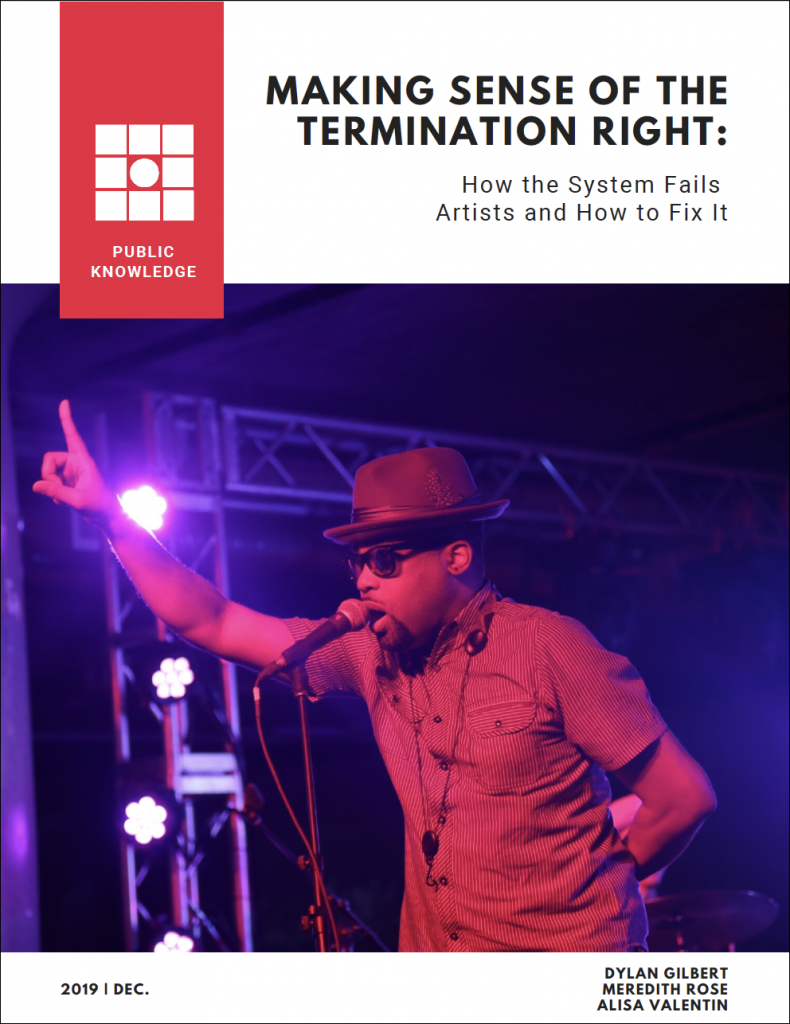
Last week, Public Knowledge released Making Sense of the Termination Right: How the System Fails Artists and How to Fix It, a report that explores the right of authors to terminate a copyright license or grant and regain rights in their works—even if their contracts contain language to the contrary.
The termination system was designed to protect authors and their heirs against unprofitable or inequitable agreements. But the report argues it is failing to protect the very people termination was designed to serve: artists and creators. According to Dylan Gilbert, Policy Counsel at Public Knowledge and co-author of the report, “Unfortunately, numerous problems—from legal cost and complexity and imbalances of power to scarce public information—are combining to create dysfunction in the system, which appears to be preventing artists from effectively using their termination right.”
The report critiques the complex eligibility, timing, and filing formalities for termination, which are exacerbated by ambiguities in the law and its application. On top of the onerous procedural requirements, the report highlights power asymmetries governing the negotiation, assignment, and reversion of ownership rights that also harm authors—particularly creators of color—who seek to exercise their termination rights.
The report recommends six policy actions to help restore fairness and functionality to termination of transfer rights:
- Revise the Copyright Act so that the termination right vests automatically;
- Revise the Copyright Act so that the termination right vests sooner than 35 years after a grant of rights under § 203 or 56 years after the copyright is first obtained under § 304;
- Eliminate or revise the “work made for hire” exception or statutory definition;
- Mitigate the need for artists to litigate ownership disputes prior to exercising their termination right by revising the statute of limitations or clarifying that the mere act of registering an adverse claim with the Copyright Office is not an effective repudiation of an ownership claim;
- Address derivative works issues through statutory clarification; and
- Conduct a formal study on the exercise and administration of the termination right, including the effects of the termination right on contract negotiation and renegotiation.
Click here to read the full report for more details on Public Knowledge’s recommendations to improve termination rights for authors.
Authors Alliance and our partners have created tools to help authors unpack the complex termination provisions. To learn more about termination of transfer and how to evaluate whether a work is eligible for termination under U.S. law, authors can explore the Termination of Transfer Tool, developed by Authors Alliance and Creative Commons. Authors can also refer to Authors Alliance’s guidance and templates for how to provide notice of termination to rightsholders and record the termination with the U.S. Copyright Office.
Discover more from Authors Alliance
Subscribe to get the latest posts sent to your email.
